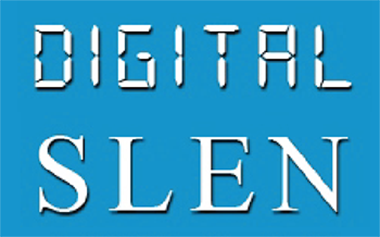President's Message

Eng. K. P. I. U. Dharmapala
Dear Members of the Institution, IESL secretariat staff members and dear readers,
17th May marks an important milestone in the history of the world in terms of telecommunication. We celebrate the anniversary of the signing of the first International Telegraph Convention in 1865 on this day and the foundation of the International Telecommunication Union (ITU) as well. Commemorating these events World Telecommunication Day has been celebrated annually on 17 May since 1969.
In November 2005, the World Summit on the Information Society called upon the UN General Assembly to declare 17 May as World Information Society Day to focus on the importance of ICT as ICT was the way forward. The General Assembly adopted a resolution in March 2006 stipulating that World Information Society Day shall be celebrated every year on 17 May.
In November 2006, the ITU Plenipotentiary Conference in Antalya, Turkey, decided to celebrate both events (World Telecommunication Day/ World Information Society Day) on 17 May as World Telecommunication and Information Society Day.
Telecommunication history dates back thousands of years, it is said to originate from the use of drums and smoke signals which was recorded in Africa, America and Asia among indigenous communities. Moving to more recent times, it was not until the late 18th century that more modern telecommunication systems emerged.
Europe was the first continent to embrace most of these new technologies before they expanded across the world. If we look at some of the key milestones of telecommunication development; in 1792, Telegraph was invented by Claude Chappe; in 1836, Morse code was developed by Samuel Morse; in 1843 Fax Machine was introduced; in 1876, Alexander Graham Bell and Thomas Watson invented the Electric Telephone; in 1877 Thomas Edison introduced the Phonograph followed by Radio in 1920; TV was invented in 1925 by John Bairde; in 1971 Computer Telephone Line Switchboard System was developed by Erna Hoover; Personal Computers were first introduced in 1976; in 1981 Nordic invented the first mobile phone; World Wide Web came in to picture in 1989 which was developed by Tim Berners-Lee and Robert Cailliau; Neil Papworth came up with the idea of text message in 1992; Skype was launched in 2003 followed by Facebook in 2004 which brought the revolution of Social Media platforms; YouTube in 2005; iPhone in 2007; WhatsApp in 2009 and one of the latest developments, Zoom virtual presence platform was introduced in 2011.
Telecommunication has come a long way over the last few hundred years. With innovations in telecommunication products and services, our technology exponentially advances. There’s no shortage of communication channels at our fingertips today!
UN Secretary-General António Guterres once stated that “Information technology can be a beacon of hope, allowing billions of people around the world to connect” highlighting the importance of telecommunication for human beings. In summary, telecommunication provides a technological foundation for societal communications while enabling participation and development.
It is difficult to predict the future impact of telecommunications technologies, services, and applications that have not yet been invented. For example, in the early days of the Internet in the late 1960s, nobody could have foreseen the full impact of today's Internet!
While celebrating World Telecommunication and Information Society Day we have to think of a better future. Still, there are developments needed in mobility, accessibility and security aspects of telecommunication. It is human nature to connect even though we are apart from hundreds of miles. One day if humans were able to conquer space, the advances made in telecommunication will still be the thread that connects us all as one entity.
Eng. K. P. I. U. Dharmapala
President (2020/ 2021)





